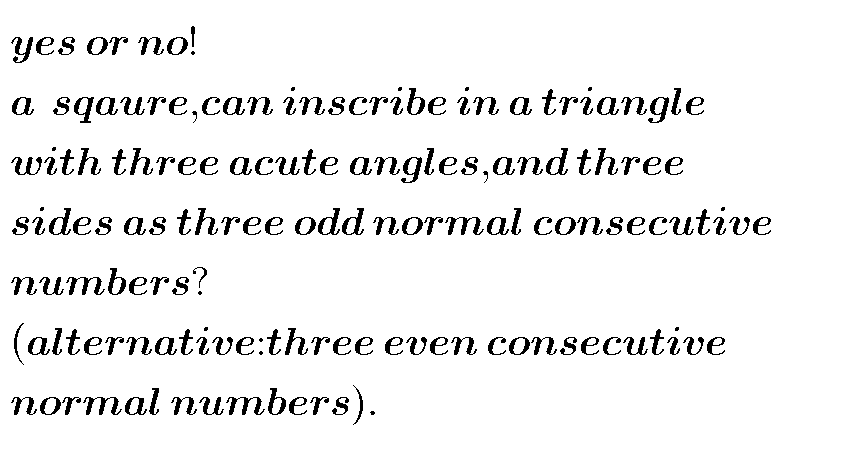
AllQuestion and Answers: Page 1698
Question Number 39336 Answers: 0 Comments: 5

Question Number 39337 Answers: 0 Comments: 0
Question Number 39332 Answers: 0 Comments: 1
Question Number 39404 Answers: 1 Comments: 7

Question Number 39312 Answers: 5 Comments: 0
Question Number 39303 Answers: 1 Comments: 1

Question Number 39300 Answers: 1 Comments: 0

Question Number 39298 Answers: 0 Comments: 0

Question Number 39292 Answers: 0 Comments: 3
Question Number 39289 Answers: 1 Comments: 0
Question Number 39291 Answers: 0 Comments: 2
Question Number 39280 Answers: 3 Comments: 1
Question Number 40946 Answers: 1 Comments: 0
Question Number 40142 Answers: 1 Comments: 1
Question Number 39272 Answers: 0 Comments: 1
Question Number 39267 Answers: 1 Comments: 1

Question Number 39257 Answers: 0 Comments: 0

Question Number 39256 Answers: 0 Comments: 0

Question Number 39255 Answers: 0 Comments: 0

Question Number 39253 Answers: 0 Comments: 2

Question Number 39258 Answers: 0 Comments: 0

Question Number 39237 Answers: 0 Comments: 1
Question Number 39236 Answers: 0 Comments: 3
Question Number 39235 Answers: 0 Comments: 1
Question Number 39231 Answers: 1 Comments: 0
Question Number 39230 Answers: 2 Comments: 0
Pg 1693 Pg 1694 Pg 1695 Pg 1696 Pg 1697 Pg 1698 Pg 1699 Pg 1700 Pg 1701 Pg 1702
